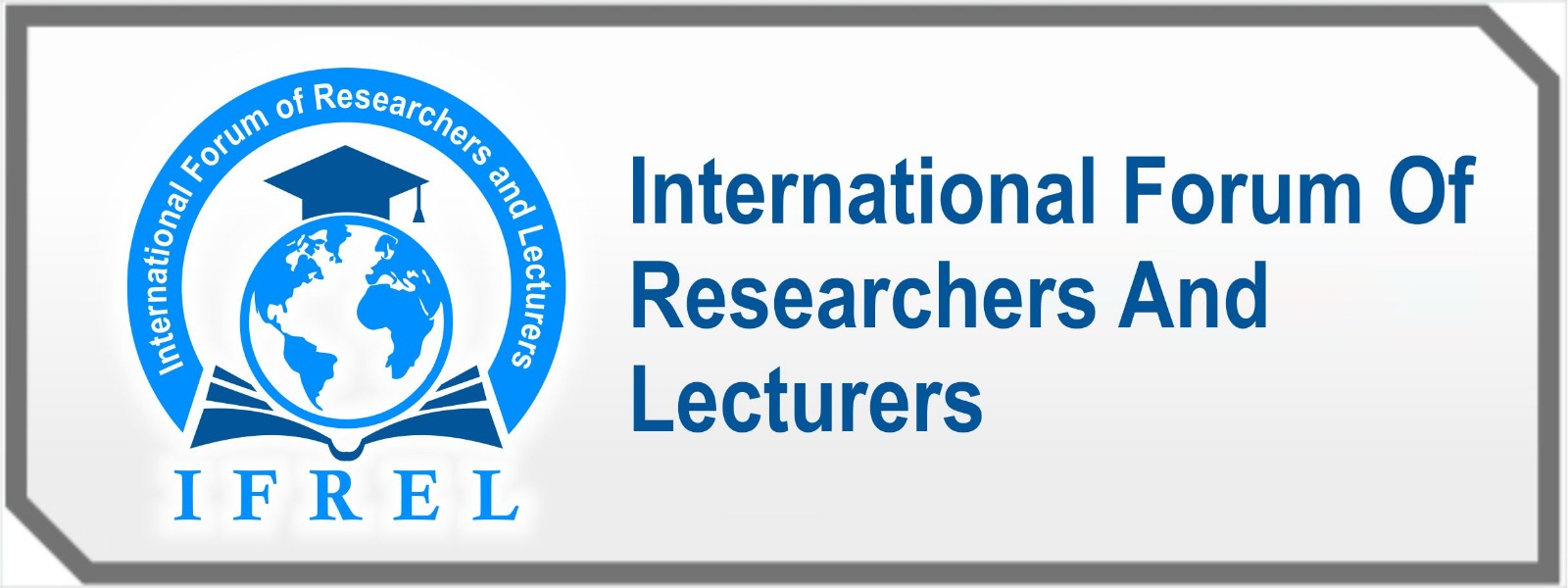Does work-family conflict explain the direct and indirect role effects of perceived organizational support and job satisfaction? Evidence in the Indonesian banking
DOI:
https://doi.org/10.55606/iceb.v1i2.186Keywords:
Structural Equation Modeling Partial Least Square, job satisfaction, perceived organizational support, work-family conflict.Abstract
The purpose of this study is to investigate both the influences of perceived organizational support and work-family conflict on job satisfaction. In addition, this research aims to investigate the impact of the mediation of work-family disputes in the connection between perceived organizational support and job satisfaction. We utilize a quantitative approach to acquire data from the subject of the study. For the sampling strategy, we employ random sampling with questionnaire distribution as the data collection tool. The data analysis method was called Structural Equation Modeling Partial Least Square (SEM-PLS). In addition, the findings of this research indicate that a favorable and significant influence on work satisfaction may be attributed to a perceived high level of organizational support. The perception of organizational support is another factor that contributes negatively to work-family conflict. Meanwhile, the tension between work and family life has a positive and noticeable impact on job satisfaction. The latest finding is that work and family conflict might be a negative mediator in the association between perceived organizational support and job satisfaction.
References
Adhikary, J. R. (2018). Work family conflict and career satisfaction in banking sector of Nepal. NRB Economic Review, April, 69–96. https://nrb.org.np/ecorev/articles/5. Role of Social Support - Jyoti Regmi.pdf
Aliasgar, S. (2017). WORK-FAMILY CONFLICT ( CASE STUDY : RURAL WATER AND WASTEWATER COMPANY EMPLOYEES KERMANSHAH , IRAN ). European Journal of Management and Marketing Studies, 2(1), 121–139. https://doi.org/10.5281/zenodo.810547
Amstad, F. T., Meier, L. L., Fasel, U., Elfering, A., & Semmer, N. K. (2011). A Meta-Analysis of Work-Family Conflict and Various Outcomes With a Special Emphasis on Cross-Domain Versus Matching-Domain Relations. Journal of Occupational Health Psychology, 16(2), 151–169. https://doi.org/10.1037/a0022170
Arslaner, E., & Boylu, Y. (2017). Perceived organizational support, work-family/family-work conflict and presenteeism in hotel industry. Tourism Review, 72(2), 171–183. https://doi.org/10.1108/TR-09-2016-0031
Asbari, M., Bernarto, I., Pramono, R., Purwanto, A., Hidayat, D., Sopa, A., Alamsyah, V. U., Senjaya, P., Fayzhall, M., & Mustofa. (2020). The effect of work-family conflict on job satisfaction and performance: A study of Indonesian female employees. International Journal of Advanced Science and Technology, 29(3), 6724–6748.
Bacharach, S. B., Bamberger, P., & Conley, S. (1991). Work‐home conflict among nurses and engineers: Mediating the impact of role stress on burnout and satisfaction at work. Journal of Organizational Behavior, 12(1), 39–53. https://doi.org/10.1002/job.4030120104
Bashir, M., Rana, S., & Ali, M. I. (2015). The Effect of Work Family Conflict on Employees Job Attitudes and Mediating Role of Organization Citizenship Behavior: A Study of the Banking Sector of. The International Academic Forum Papers.Iafor.Org, 1–14. http://papers.iafor.org/papers/ebmc2015/EBMC2015_14284.pdf
Charoensukmongkol, P., Moqbel, M., & Gutierrez-Wirsching, S. (2016). The role of co-worker and supervisor support on job burnout and job satisfaction. Journal of Advances in Management Research, 13(1), 4–22.
Dixon, M. A., & Sagas, M. (2007). The relationship between organizational support, work-family conflict, and the job-life satisfaction of university coaches. Research Quarterly for Exercise and Sport, 78(3), 236–247. https://doi.org/10.1080/02701367.2007.10599421
Dodanwala, T. C., San Santoso, D., & Shrestha, P. (2022). The mediating role of work–family conflict on role overload and job stress linkage. Built Environment Project and Asset Management, ahead-of-print.
Dodanwala, T. C., & Shrestha, P. (2021). Work–family conflict and job satisfaction among construction professionals: the mediating role of emotional exhaustion. On the Horizon.
Eisenberger, R., Huntington, R., Hutchison, S., & Sowa, D. (1986). Eisenberger 1986 JAppPsychol POS original article. Journal of Applied Psychology, 71(3), 500–507.
Erdogan, B., & Enders, J. (2007). Support from the top: supervisors’ perceived organizational support as a moderator of leader-member exchange to satisfaction and performance relationships. Journal of Applied Psychology, 92(2), 321.
Filipova, A. A. (2011). Relationships among ethical climates, perceived organizational support, and intent-to-leave for licensed nurses in skilled nursing facilities. Journal of Applied Gerontology, 30(1), 44–66.
Foley, S., Hang-Yue, N., & Lui, S. (2005). The effects of work stressors, perceived organizational support, and gender on work-family conflict in Hong Kong. Asia Pacific Journal of Management, 22(3), 237–256. https://doi.org/10.1007/s10490-005-3568-3
Ghozali, I. (2014). Structural Equation Modeling, Metode Alternatif dengan Partial Least Square (PLS) (4th ed). Badan Penerbit Universitas Diponegoro.
Gurbuz, S., Turunc, O., & Celik, M. (2013). The impact of perceived organizational support on work-family conflict: Does role overload have a mediating role? Economic and Industrial Democracy, 34(1), 145–160. https://doi.org/10.1177/0143831X12438234
Herdyanti, F., Muzakki, & Abidah, M. N. (2020). Bagaimana peran job motivation dalam memediasi hubungan workload dan job performance ?: Empirical investigation. Media Riset Bisnis & Manajemen, 20(1), 1–14.
Hong, E., Jeong, Y., & Downward, P. (2019). Perceived organizational support, internal motivation, and work–family conflict among soccer referees. Managing Sport and Leisure, 24(1–3), 141–154. https://doi.org/10.1080/23750472.2019.1593049
Hong, X., Liu, Q., & Zhang, M. (2021). Dual Stressors and Female Pre-school Teachers’ Job Satisfaction During the COVID-19: The Mediation of Work-Family Conflict. Frontiers in Psychology, 12(June), 1–12. https://doi.org/10.3389/fpsyg.2021.691498
Kahya, C., & Kesen, M. (2014). The effect of perceived organizational support on work to family conflict : A Turkish case. Research Journal of Business and Management, 1(2), 139–148.
Karatepe, O. M., & Kilic, H. (2007). Relationships of supervisor support and conflicts in the work-family interface with the selected job outcomes of frontline employees. Tourism Management, 28(1), 238–252. https://doi.org/10.1016/j.tourman.2005.12.019
Li, J. C. M., Cheung, C., Sun, I. Y., Cheung, Y., & Zhu, S. (2022). Work–family conflicts, stress, and turnover intention among Hong Kong police officers amid the covid-19 pandemic. Police Quarterly, 25(3), 281–309.
Maan, A. T., Abid, G., Butt, T. H., Ashfaq, F., & Ahmed, S. (2020). Perceived organizational support and job satisfaction : a moderated mediation model of proactive personality and psychological empowerment. Future Business Journal, 6(1), 1–10. https://doi.org/10.1186/s43093-020-00027-8
Matijaš, M., Merkaš, M., & Brdovčak, B. (2018). Job resources and satisfaction across gender: the role of work–family conflict. Journal of Managerial Psychology, 33(4–5), 372–385. https://doi.org/10.1108/JMP-09-2017-0306
Mody, L., Griffith, K. A., Jones, R. D., Stewart, A., Ubel, P. A., & Jagsi, R. (2022). Gender differences in work-family conflict experiences of faculty in academic medicine. Journal of General Internal Medicine, 37(1), 280–282.
Muzakki, & Hutabarat, H. G. L. M. B. (2022). Role of Organization Citizenship Behavior Mediation in Work Motivation Relationship To Employee Performance : Empirical Study. ECOBISMA (Jurnal Ekonomi, Bisnis, Dan Manajemen), 9(1), 21–42.
Muzakki, & Pratiwi, A. R. (2019). Kepemimpinan Transformasional dan Efikasi Diri Terhadap Kinerja Karyawan. Jurnal Ilmiah Manajemen Dan Bisnis, 20(2), 82–91. https://doi.org/DOI: https://doi.org/10.30596/jimb.v20i2.3264
Pluut, H., Ilies, R., Curşeu, P. L., & Liu, Y. (2018). Social support at work and at home: Dual-buffering effects in the work-family conflict process. Organizational Behavior and Human Decision Processes, 146(April 2016), 1–13. https://doi.org/10.1016/j.obhdp.2018.02.001
Pratiwi, A. R., & Muzakki, M. (2021). Perceived Organizational Support Terhadap Komitmen Organisasi dan Kinerja Karyawan. Jurnal Ilmiah Manajemen Dan Bisnis, 22(1), 111–120. http://jurnal.umsu.ac.id/index.php/mbisnis%0APerceived
Retnowati, A. N., Aprianti, V., & Agustina, D. (2020). Dampak Work Family Conflict dan Stres Kerja Pada Kinerja Ibu Bekerja Dari Rumah Selama Pandemic Covid 19 di Bandung. Sains Manajemen, 6(2), 161–166. https://e-jurnal.lppmunsera.org/index.php/SM/article/view/2963
Rudolph, C., Michel, J., Harari, M., & Stout, T. (2014). Perceived social support and work-family conflict: A comparison of Hispanic immigrants and non-immigrants. Cross Cultural Management, 21(3), 306–325. https://doi.org/10.1108/CCM-01-2013-0002
Saha, S., & Kumar, S. P. (2018). Organizational culture as a moderator between affective commitment and job satisfaction: Empirical evidence from Indian public sector enterprises. International Journal of Public Sector Management, 31(2), 184–206. https://doi.org/10.1108/IJPSM-03-2017-0078
Selvarajan, T. T., Cloninger, P. A., & Singh, B. (2013). Social support and work-family conflict: A test of an indirect effects model. Journal of Vocational Behavior, 83(3), 486–499. https://doi.org/10.1016/j.jvb.2013.07.004
Sharma, P., Kong, T. T. C., & Kingshott, R. P. J. (2016). Internal service quality as a driver of employee satisfaction, commitment and performance: Exploring the focal role of employee well-being. Journal of Service Management, 27(5), 773–797. https://doi.org/10.1108/JOSM-10-2015-0294
Sun, J. M., Jiao, H. T., & Zhao, J. (2011). The moderating effect of perceived organizational support in job engagement and work-family conflict. Chin. J. Appl. Psychol, 17, 31–35.
Wattoo, M. A., Zhao, S., & Xi, M. (2018). Perceived organizational support and employee well-being: Testing the mediatory role of work–family facilitation and work–family conflict. Chinese Management Studies, 12(2), 469–484. https://doi.org/10.1108/CMS-07-2017-0211
Zheng, J., & Wu, G. (2018). Work-family conflict, perceived organizational support and professional commitment: A mediation mechanism for chinese project professionals. International Journal of Environmental Research and Public Health, 15(2), 1–23. https://doi.org/10.3390/ijerph15020344
















